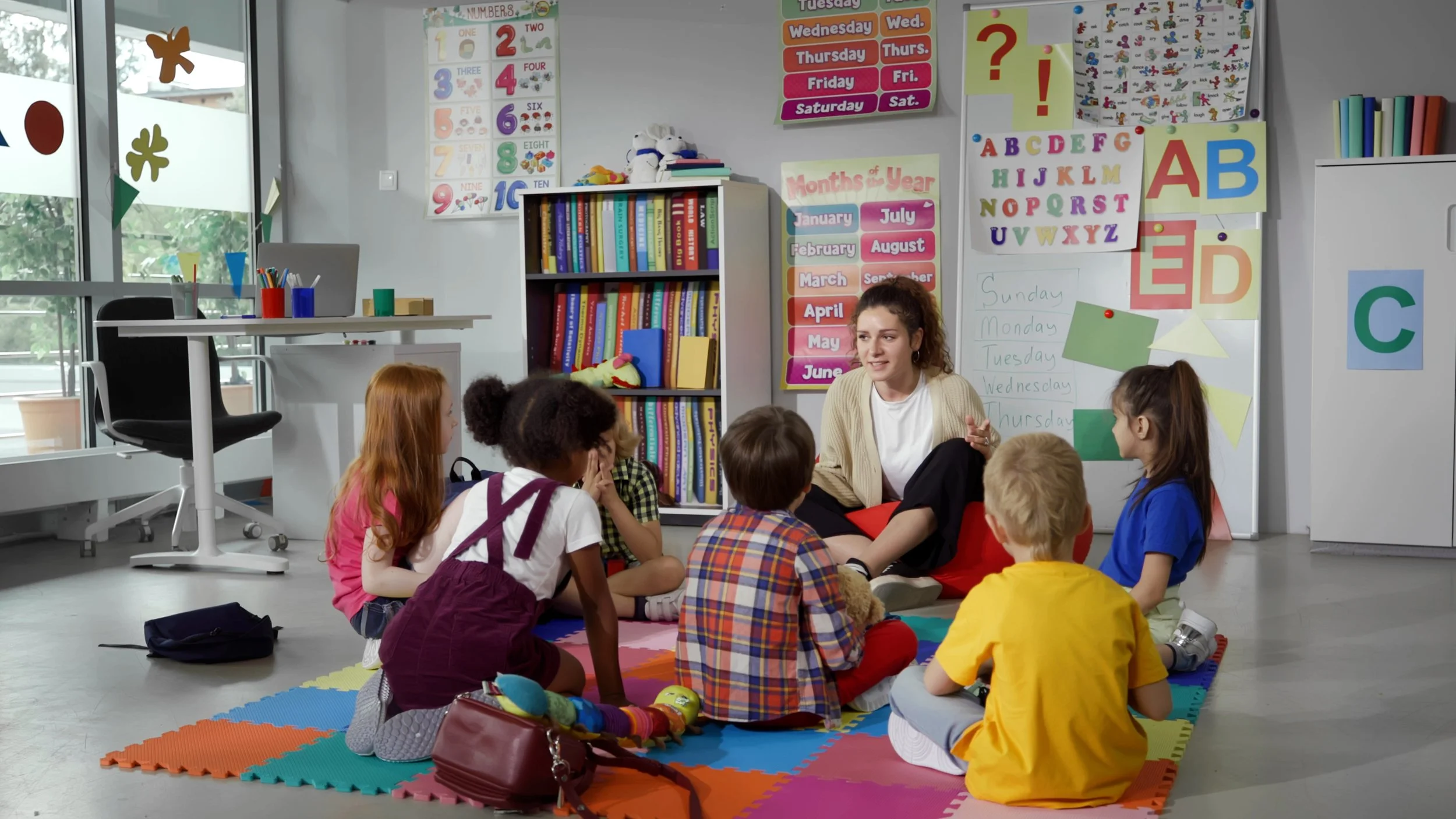Behavior & Mental Health
Ensure educators have resources to support productive and healthy behaviors and general health for students and staff.
Caring for Students and Staff’s Well-Being
Schools are entering a new era where they need to be cognizant of their students’ and staff’s mental well-being. Through the Behavior & Mental Health Center of Excellence, schools receive the resources and tools, training, and coaching needed to support healthy behaviors for both students and staff and encourage positive social-emotional learning (SEL).
Behavior & Mental Health Services
-
The foundation of a healthy school community is the Mental Wellness of staff and students. Mental Wellness is necessary to achieve the most fundamental purpose of schools - academic, social, and personal growth for all students. Mental Health and Wellness are not just the absence of Mental Illness, but rather having healthy brains that allows individuals, and communities, to thrive. Mental Wellness encompasses dispositions that can be learned and practiced; such as resilience, managing emotions, productivity, stress management, and the ability to connect and work with others. Engaging in efforts to increase School Mental Health consists of a thoughtful approach to different aspects of a school system. CESA 2 consultants are able to offer professional development to both individual staff members and/or facilitate adaptive systems change to create or improve their Comprehensive School Mental Health System through group training and in-district coaching. Additionally, they can support needs assessment and action planning, often utilizing the SHAPE assessment, to guide these efforts.
-
At this training, participants will receive certification in the Crisis Prevention Institute’s (CPI) Nonviolent Crisis Intervention (NVCI) Training. This training focuses on the recognition that all behavior is a form of communication and provides participants with the tools to recognize/respond appropriately to support the student and deescalate the situation. Participants will be able to identify student’s behavioral levels and will learn valuable approaches/strategies to respond appropriately for each of those levels. This training includes the teaching of holding and disengagement skills as part of the safety interventions. At the conclusion of the training, participants will earn their NVCI Blue Card Certification. Both the initial NVCI and the refresher trainings are available in-district and at CESA 2.
-
The Crisis Prevention Institute’s Verbal Intervention Training provides staff with an effective framework for preventing, de-escalating, and safely responding to crisis behavior. The program centers on the recognition that all behavior is a form of communication. Participants will gain a broad range of tools to help them manage their own emotional responses and identify escalating behaviors in others. This training does not include any holding and disengagement skills. At the conclusion of the training, participants will earn their CPI Verbal Intervention Blue Card. This training is available in-district and at CESA 2.
-
Even when implementing a universal behavior support program to a high level of fidelity, some students will need additional support. CESA 2 consultants can train school staff in the use of Functional Behavioral Assessments (FBA) and design of Behavior Intervention Plans (BIPs). Ongoing coaching or review of FBA and/or BIPS is also available.
-
Wisconsin Multi-Level System of Support (WiMLSS) is a process for achieving higher levels of academic and behavioral success for all students. It is an overarching framework and logic for organizing and increasing the efficiency with which evidence-based practices are selected, organized, integrated, implemented, and adapted.
In the vision for WiMLSS, the three essential elements of high-quality instruction, balanced assessment, and collaboration systematically interact within a multi-level system of support to provide the structures to increase success for all students. Culturally responsive practices are central to an effective WiMLSS system and are evident within each of the three essential elements. In a Multi-level System of Support, schools employ the three essential elements of WiMLSS at varying levels of intensity based upon student responsiveness to instruction and intervention. These elements do not work in isolation. Rather, all components of the visual model inform and are impacted by the others. Taken together, this relationship forms Wisconsin’s vision for WiMLSS.
-
Through building awareness of Secondary Trauma, Compassion Fatigue, and understanding how to boost Compassion Resilience and Professional Self-care, CESA 2 can help school district staff increase their professional stamina to best serve their students. CESA 2 consultants are able to offer professional development to both individual staff and specific staff groups seeking to boost their own resilience and to school systems desiring to support their staff’s wellness.
-
The Pyramid Model is created by the Center for the Social and Emotional Foundations for Early Learning (CSEFEL) and the Technical Assistance Center on SociEmotional Intervention for Youth Children (TACSEI). Based on the public health model, the Pyramid Model looks to guide educators, families, and other early childhood professionals, specifically for those involved with children up to five years old. The model promotes positive social, emotional, and behavioral outcomes for ALL students in the education system and gives plans to help children with or at risk for delays and disabilities in their early development. Through workshops and consulting, CESA 2 professionals will help implement the Pyramid Model in your school system.
-
More information coming soon!
-
In order to help students become College and Career Ready, it is essential that they develop social and emotional skills. In addition to this being a worthy aspect of education on its own, research has shown students with strong social and emotional skills are able to perform better academically and better engage in instruction. CESA 2 staff are able to support schools in their journey toward ensuring staff and students develop strong social and emotional skills.
-
Given the high exposure of Adverse Childhood Experiences (ACESs), Toxic Stress, and resulting Trauma, CESA 2 staff are trained to support our schools and school district staff in adopting philosophies and practices to become more Trauma Sensitive. By partnering with DPI and utilizing online learning modules, CESA 2 professionals are able to develop educators through knowledge building and coaching to individuals, leadership teams, and school systems. When adopting a Trauma Sensitive School approach, schools are acting to enhance students’ educational outcomes by reducing barriers related to trauma. CESA 2 consultants also assist schools to ensure this lens is applied through the existing school framework (i.e., Equitable MLSS) and is additive to other school efforts, such as SEL, behavior programs, etc.
Student and staff well-being and professional self-care are essential to school districts. CESA 2 can help school district staff increase their professional stamina to best serve their students.
Behavior & Mental Health Resources

Meet Deidra Gorman
Senior Director, Behavior & Mental Health
Deidra Gorman serves as the Senior Director of Behavior and Mental Health, a School Improvement Consultant, and a WiMLSS Coach for CESA 2. Prior to this role, she worked with the Wisconsin RtI Center as a Technical Assistance Coordinator/MLSS Systems Coach. A systems thinker with a background in Implementation Science, Deidra is committed to partnering with school districts on continuous improvement efforts that remove barriers and support all students.
Staff Listing
Stacy Duffy
Transition & Identification Specialist
Tracy Elger
Executive Director of Integrated Programs & Services
Deidra Gorman
Senior Director, Behavior & Mental Health
Jen Townsend
Implementation Specialist




